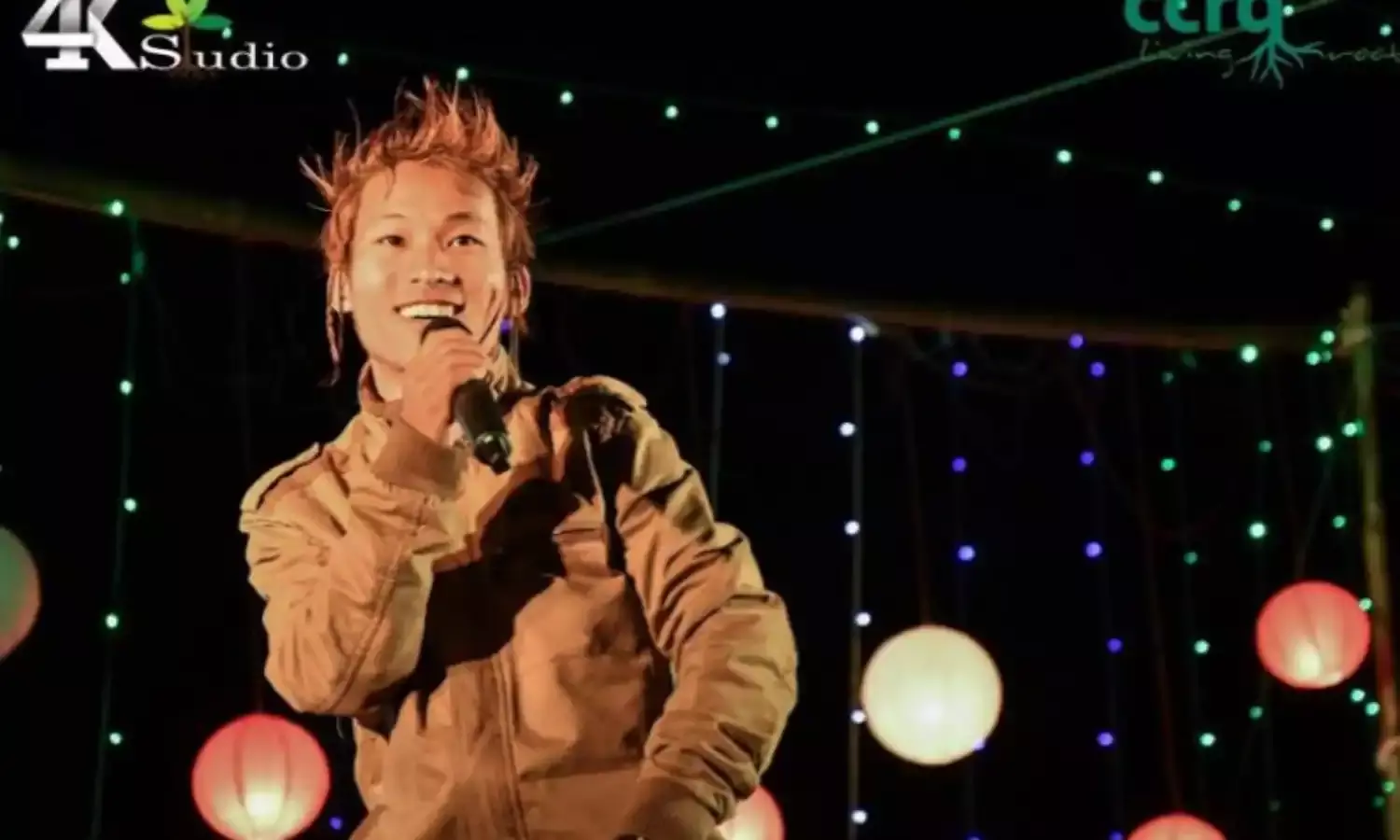K4Kekho: Ollo, You Might Be Small But Your Words Are Big
'I am an Indian' made small hamlet boy a rap sensation

Sporting two long fringes that run down to his ears and despite not being the tallest man in most rooms, Kekho Thiamkho casts a large shadow. But then again, it was not his looks that shot him into semi-stardom.
Kekho Thiamkho, better known by his stage name K4 Kekho, hails from the small hamlet of Chinghan in Tirap district along India’s international border with Myanmar in Arunachal Pradesh. A relative unknown in a state with a population of around 15 lakh until two years ago, K4 Kekho became a viral sensation when his song, ‘I am an Indian’, began circulating on WhatsApp.
Sung partly in English and a dialect of Hindi unique to Arunachal Pradesh, the song deals with issues of racism and ignorance about the state and the Northeast that people from the region often face in ‘mainland’ India. Although the song deals with serious issues, it is the satirical tone of the lyrics and the catchy tune that leave a lasting impact on listeners.
The song opens with K4 Kekho’s signature ‘ollo’ (more on that later) and introducing himself before he goes on to the first lines of the song: Arunachal Pradesh ka mein. Kya yeh jegah China mein (I’m from Arunachal Pradesh. Is this place in China)?
The ‘China’ reference acts as a double innuendo on China’s territorial claims over the state and sets the tone for the rest of the song.
Midway through the song, Kekho sings: Institutions lok hum logo ko yaha mein padhne ao boltai. Phir roadside mein koi-koi lok jegah se jao boltai (Educational institutes induce us to join their academies. But people on the street tell us to go back).
Those lines are an expression of what many from Northeast, especially those who venture out to pursue higher education, continue to experience in places like New Delhi and Bengaluru. Incidentally, Kekho never spent any significant amount of time outside the state for his education, having completed his graduation from Don Bosco College near Itanagar. However, he had heard enough from his friends to feel confident to write and rap about the issue.
“I used to listen to my friends who were studying outside talk about their experiences. They were so angry and frustrated with what they had to undergo at times,” he said.
On January 27, K4 Kekho was at the lawns of the Hotel Donyi Polo Ashok in Itanagar for the launch of a six-part poetry-themed web series called The Vivid Project where he is one of the six featured poets.
Post a brief appearance on stage, K4 Kekho took time out to wander around when I introduced myself as a fan and told him that he was the reason I came for the launch.
During the conversation, he talked about how he was introduced to music through his father’s collection of old Hindi film songs on cassettes. He even sang one of those songs on stage one year in school.
“The teachers and the older people in the audience liked it but the young students were bored,” he said. The next year he switched to rap music as a more immersive art form to connect with the younger crowd. That decision appears to have paid off.
He is now somewhat of a minor sensation in his home state (‘minor’ meaning that he isn’t exactly getting swamped by fans on the streets looking for selfies or autographs). While he does seem to be living the good life now with him becoming a regular at local gigs, life wasn’t always easy.
Kekho said that as a child he had to walk for two hours from the administrative circle of Lazu to reach his home. Not much has changed as motor-able roads still haven’t been made that find their path to Chinghan.
Kekho doesn’t rap much about subjects that do not have social relevance in his eyes and cares for issues that are close to his community and his home.
He comes from the small Ollo tribe of Tirap district in the eastern part of the state that has been inflicted with insurgency and opium addiction among young men for years. Kekho said that he is currently working on songs that address these issues.
That evening, he gave us a sneak peek to a new song he is working on.
It begins: Ollo. I was born in a village called Lower Chinghan, located in the border of Indo-Myanmar, where one cannot speak for the rights he deserves, afraid of AK-47 loaded real guns. Ollo!
The ‘ollo’, he said, is a tribute to his tribe and can mean anything from ‘hello’, ‘goodbye’, ‘brother’, ‘sister’, and ‘friend’.
By this time, a few of his ‘fans’ had become part of our conversation and listening intently to what Kekho had to say.
Continuing the conversation, he maintains a humble demeanour while his hands constantly wave about front and back, left and right, as if he’s engaged in rap-battle and says that his limited English-language vocabulary makes it difficult for him to freestyle. He also informed that a video for ‘I’m an Indian’, the song that birthed the K4 Kekho sensation, is in the works.
By the end of the evening, our conversation steers towards his height.
“I’m not quite five feet tall. Around 4.8 or 4.9,” he tells us.
One of the people listening in on the conversation quickly adds, “You may be small but your words are big”.



